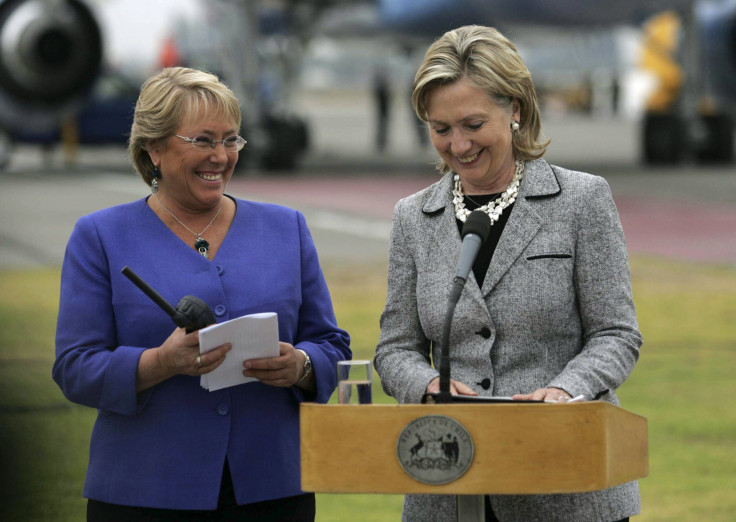
Chilean President Michelle Bachelet signed a pro-pot measure that Democratic presidential candidates have discussed for weeks: removing marijuana from a list of dangerous drugs. In the move comes after years of legal limbo for Chilean cancer patients and other victims of illness and injury who couldn’t legally purchase the plant or it’s THC-laden products which are prescribed by doctors to relieve pain. While pot consumption has been decriminalized in Chile for some time, users including pain patients have stilled faced negative repercussions. As recently as November, a mother was separated from her newborn child due to smoking pot, according to the BBC.
"They have violated my rights as a mother," Sindy Melany Ortiz told the BBC, "I use this drug only for the pain in my arms, it was recommended by a medical professional to me and I am absolutely not a drug consumer."
Ortiz was reunited with her baby after 12 days, but under strict conditions, local media report.
Bachelet’s executive action might ensure that some of the red tape is removed from the green medication. The also coincide with a legislative push to legalize marijuana for recreational use.
On the opposite end of the hemisphere from Chile, the U.S. state of Alaska has become the latest to implement a legal pot scheme. In November, it also became the first state to allow public consumption in certain shops, similar to measures adopted years ago in the Netherlands.
U.S. leaders are contemplating streamlining of marijuana laws. Currently, cannabis consumers and producers navigate a labyrinth of conflicting laws across a patchwork of states where marijuana is legal, decriminalized, or available to medical patients with certain conditions.
“I do support the use of medical marijuana,” Hillary Clinton said in a Nov. 8 speech, quoted by Politico. “I want to move from Schedule 1 to Schedule 2 so researchers can research what’s the best way to use it, dosage, how does it work with other medications.”
Clinton’s proposal would not legalize marijuana for medical use as Bachelet's executive order did, but it would mark a new era in U.S. policy by making marijuana possession less of a crime, and reducing federal interference with pro-marijuana states.
Clinton isn’t the first or the only national leader to call for changing marijuana law (her rivals Bernie Sanders and Martin O’Malley would go even further to liberalize pot laws) but it’s a significant position to have coming from a centrist candidate.
Is marijuana legal in your U.S. state or Latin American country? Let us know what you think of these laws in the comments below.
© 2025 Latin Times. All rights reserved. Do not reproduce without permission.



